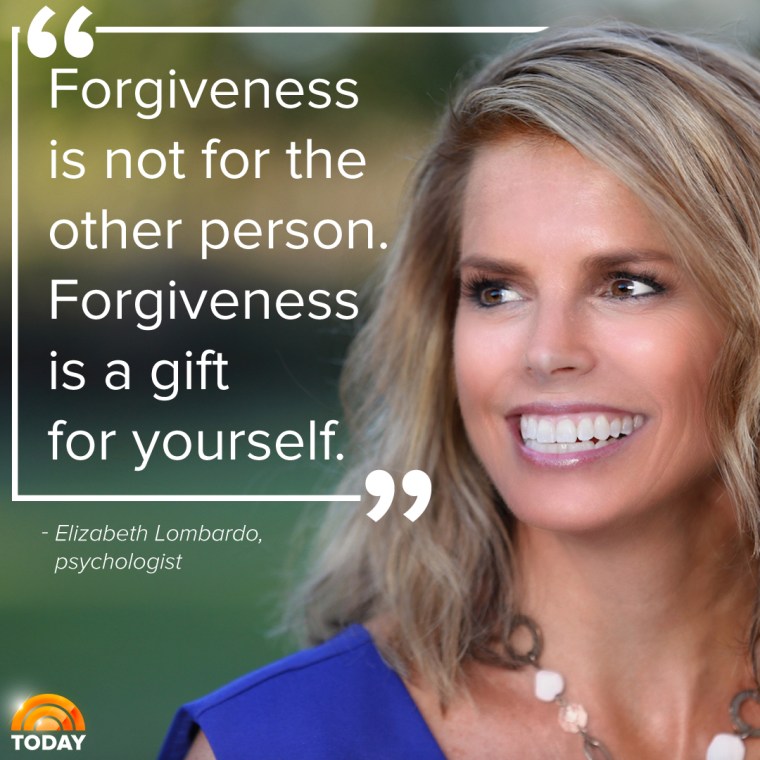Elizabeth Lombardo is a psychologist and best-selling author of “Better Than Perfect: 7 Strategies to Crush Your Inner Critic and Create a Life You Love.” As part of TODAY's new series #OneSmallThing, she shares her tip for Family & Friendship Friday.

My “One Small Thing” is forgiveness.
It’s important because when we carry around resentment and anger, guilt and shame, it hurts our health, happiness and our relationships. By releasing all of that, you can actually rekindle relationships with yourself and everyone in your life.
Forgiveness is not for the other person. Forgiveness is a gift for yourself. People who harbor anger and resentment are more likely to get ill, have cardiac disease, die early. So this is something you’re doing for yourself. When you’re in a state of resentment and anger, you can’t be a great parent or a great partner.
Get more tips for your mind, body and good health with the One Small Thing newsletter
Here are things to keep in mind:
Understand what forgiveness is and isn’t
That’s one of the biggest obstacles to forgiveness.
Forgiveness is not forgetting. You’re not going to forget — it happened.
Forgiveness is not condoning what happened. Forgiveness is not letting it happen again.
Forgiveness does not require anyone else. A lot of times people think, “I’ll only forgive if they apologize.” Forgiveness is an internal event where you give up the wish that something had not happened. You’ve been saying, “If only that hadn’t happened, then I would be happy.” But you can’t go back in time. Rather, say “I can’t change what happened, I can’t change the past. I can change the present and the future, and I choose to do that.”
Many people say they can’t forgive because what happened was too big of an event. But you can’t forgive something that was a good thing. Of course it was something bad that happened. But you are saying, “I’m going to let that be in the past.”
That’s really what forgiveness is: acceptance that it happened and asking yourself, “What can I do now?”
Related: 'Set yourself up to win': The simple morning routine that will change your day
Manage your expectations
Nobody is perfect. Everyone messes up. Focus on what is better than perfect.
Think about the person you would like to rekindle a relationship with: What do you miss about them? Maybe laughing with them or sharing family traditions. Then realize: Laughter is better than “perfect,” family traditions are better than “perfect.” Really focus on what’s important to you.
Don’t wait for the other person to act
A lot of times, people say, “I’ll wait for them to call me.” Don’t — they’re saying the same thing. Be the leader in this situation. Why not you?
Take accountability
Even if you were not the person who initially did the wrongdoing, you probably had some role in this. Apologize sincerely, without the word “but.” So “I’m sorry I yelled at you, but you yelled at me first” doesn’t count. Rather say, “I’m sorry that I yelled at you. I care about you and I want us to move past this and rekindle our friendship.”
Related: 'Let it Go': Applying forgiveness to your daily life
You can forgive someone without wanting to see that person or rekindle a relationship
I work with people who have been in domestic violence situations and they can forgive the abuser, but it doesn’t mean they get back into that marriage.
With forgiveness comes learning
Ask yourself: How can I be different? How can I prevent this from happening in the future? You can be assertive and say, that can’t happen in a healthy relationship. That’s not a relationship that I want to be in. We can certainly learn from it and be assertive with it.